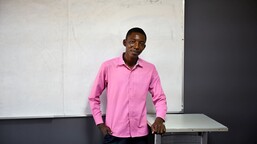The number of people forced to leave their homes has more than doubled in the last decade. There are over 122 million forcibly displaced people worldwide, marking the highest single year increase recorded. The war in Ukraine has caused one of the largest and fastest population movements since the Second World War and has contributed significantly to this record number. Here are some more important facts about refugees.
1.There are over 122 million people in the world who have had to leave their homes
The number of people forced to leave their homes crossed the 122.6 million mark by June, 2024, for the first time in history. This means roughly 1 in 67 people worldwide were displaced from their homes as of mid-2024. Most people leave due to war, ethnic or religious persecution, other forms of violence and, more recently, issues related to climate change. The numbers of displaced people are likely to be much higher because of the war in Gaza, where most people have had to flee their home.
2. Around 58 per cent of the forcibly displaced people remain in their home country
Majority of those who have had to leave their homes move to safer regions of their homeland. They thus become internally displaced. This represents an estimated 72.1 million people, mostly from Sudan, the DRC, Ukraine, Somalia, and Myanmar. The rest then flee to seek refuge beyond their country's borders.
3. Turkey and Iran host the most refugees in the world
Low- and middle-income countries host 71 per cent of all refugees. In comparison, high-income countries welcome 25 per cent of refugees. Turkey has long been the largest host country, but it has recently been overtaken by Iran. Turkey today shelters roughly 3.3–3.5 million refugees (mostly Syrians), while Iran is hosting about 3.8 million (mostly Afghans). The 2 earthquakes that shook the country in February 2023 have severely affected the refugee population, causing even more difficult living conditions.
4. 69 per cent of refugees remain in countries neighboring their home country
Up to 69 per cent of people, who have been forced to leave their homes and go abroad, remain in neighboring countries. They want to stay close to their homeland in a culturally familiar environment. A common reason is also the limited financial budget to travel to safety. In addition, there can be significant risks as they can be trapped in dangerous and violent areas. Nonetheless, for the countries hosting the refugees, this places a heavy burden.
5. Two-fifths of the forcibly displaced are children
Although children make up less than a third of the world's population, they account for over 40 percent of the forcibly displaced due to conflict and violence. Over the past year, the number of displaced children climbed to its highest level ever – now exceeding 50 million globally. Children are among the most vulnerable group of refugees and internally displaced persons, often finding themselves denied access to health care, education, or other basic needs. Between 2018 and 2022, 1.9 million children were born with refugee status.
6. Refugees from just 5 countries make up the majority of all refugees in the world
A majority of the world’s refugees come from just five countries. As of the latest data, about 73% of all refugees originate from Afghanistan, Syria, Venezuela, Ukraine, and Sudan. Afghanistan and Syria each have roughly 6.4 million of their citizens living as refugees abroad, while Venezuela and Ukraine each have around 6 million. The conflict in Sudan, which began in 2023, has already driven about 1.5 million Sudanese to become refugees. Most other refugees come from a handful of countries in regions like sub-Saharan Africa. Correspondingly, that region hosts about one-fifth of the global refugee population, especially after the recent Sudan crisis increased refugee numbers in Africa.
Caritas Czech Republic also helps refugees
Despite many prejudices, refugees are not just people waiting with their hands out for help. On the contrary, they want to study, find work and be self-sufficient. It is difficult for them to stand on their own feet in a new environment. Caritas Czech Republic offers them a helping hand.
We help refugees and internally displaced people get an education, we provide scholarships and courses where they learn business skills or a specific trade. We have also provided dignified shelter for displaced people as well as immediate humanitarian and financial assistance.












